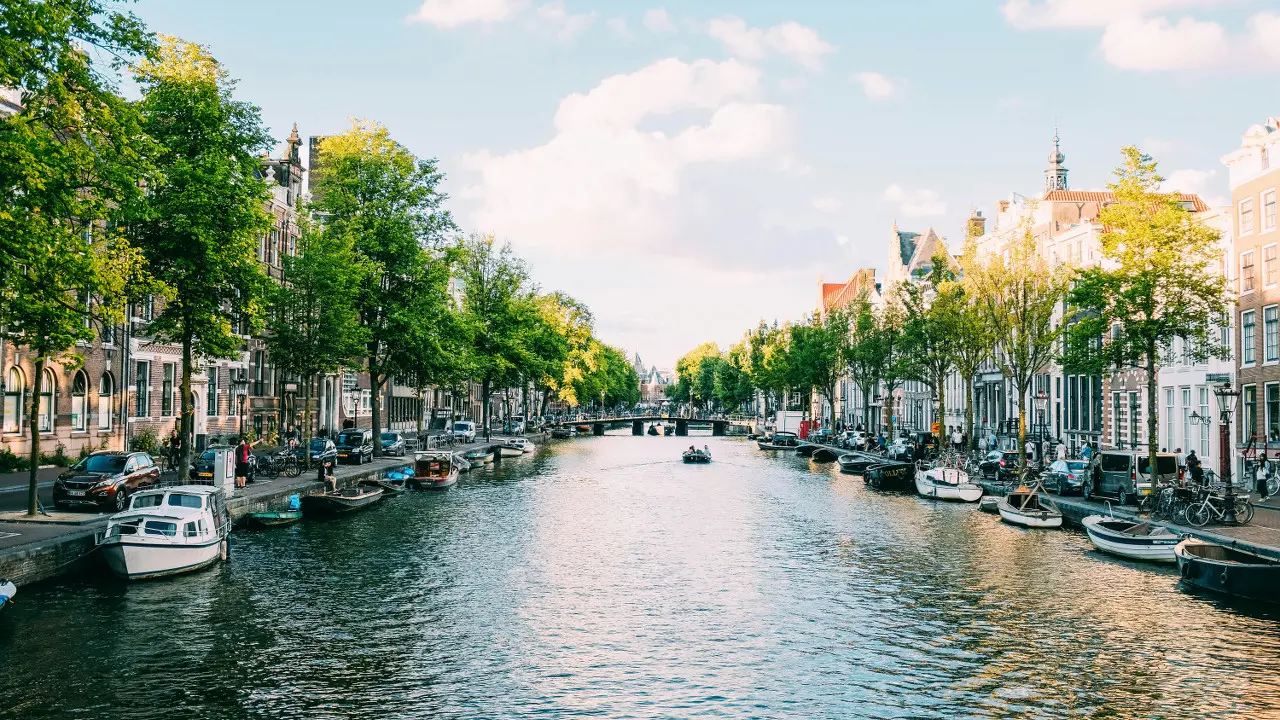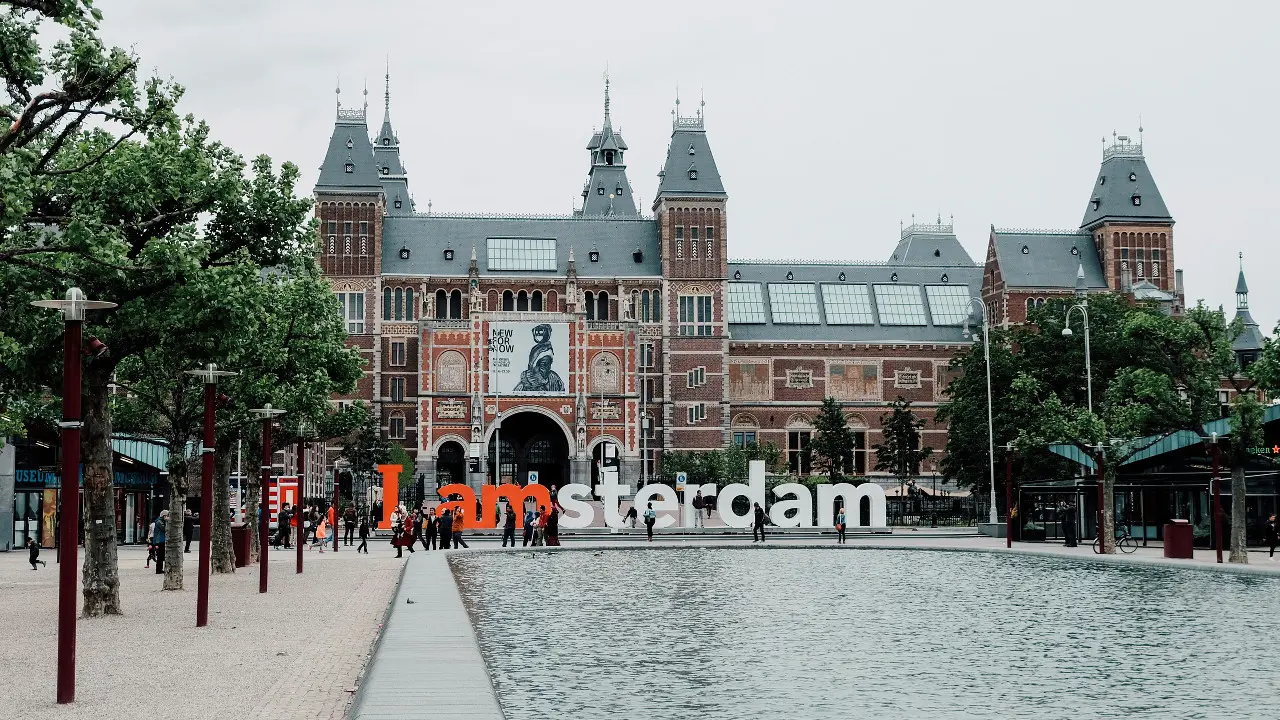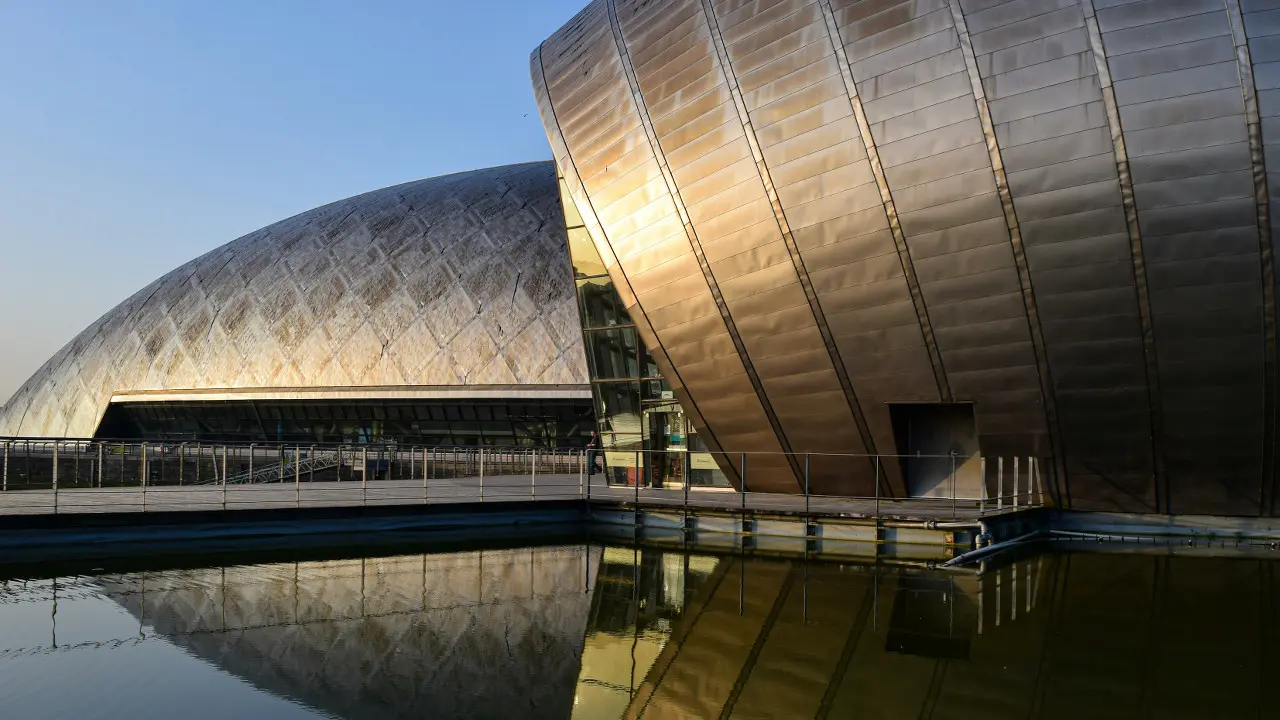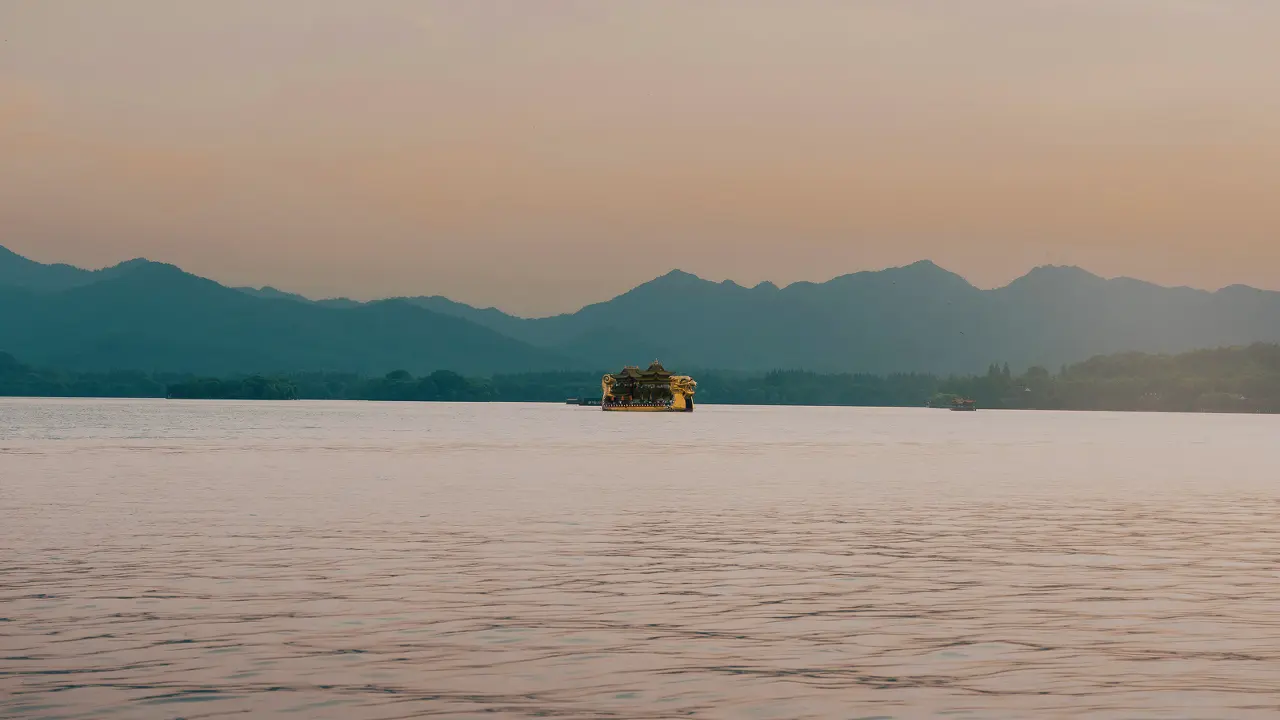ABOUT
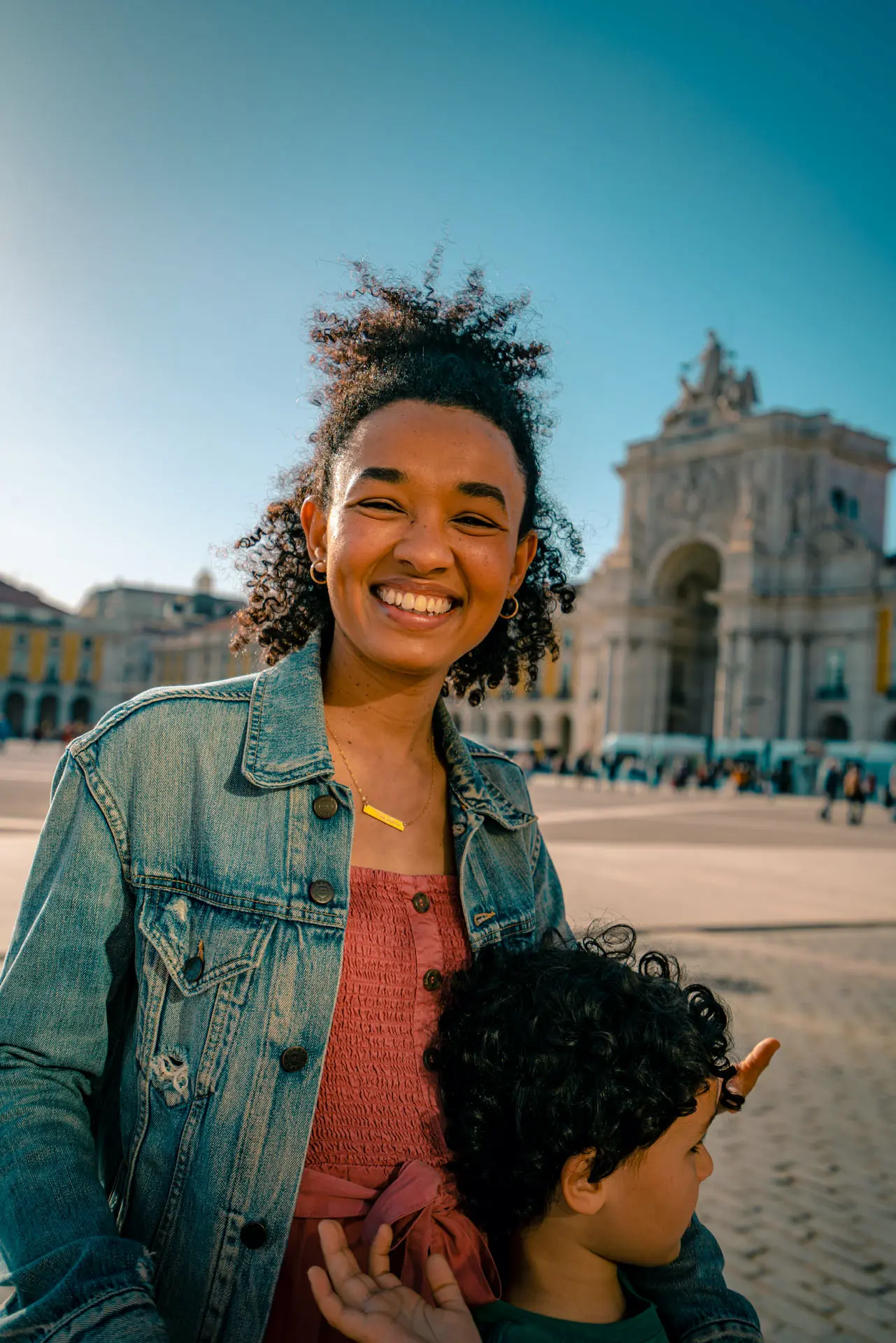
Mia was born and raised on Guam, a tiny island that is a United States territory near the Philippines. She is not native to Guam (her parents are not from Guam), but since she was raised there, it is home to her, and it’s why she identifies as Pacific Islander in addition to being of African-Caribbean, Mexican, and German descent, which she inherits from her parents. She is a wife and a mom to two children.
Tell us about yourself
I am the founder of No Longer Last, which is my mission to encourage women to make their health, happiness, and well-being a priority. No Longer Last was born from my own struggle to heal from childhood abuse and religious trauma and to overcome people-pleasing and debilitating perfectionism. I decided to share my healing journey online in 2017, and since then I’ve built a community of people who want to heal, break cycles, and live more fulfilling lives. I host my own podcast, and I provide a trauma-informed self-care coaching program and an online course to help women go on their own No Longer Last Journey. I’m also the Senior Communications Manager at a nonprofit that advocates for policies that improve the mental health of mothers and birthing people in the United States of America. I speak English, but I want to be fluent in Portuguese and Spanish. My husband and I both run our own companies providing digital marketing services for companies based in the U.S.
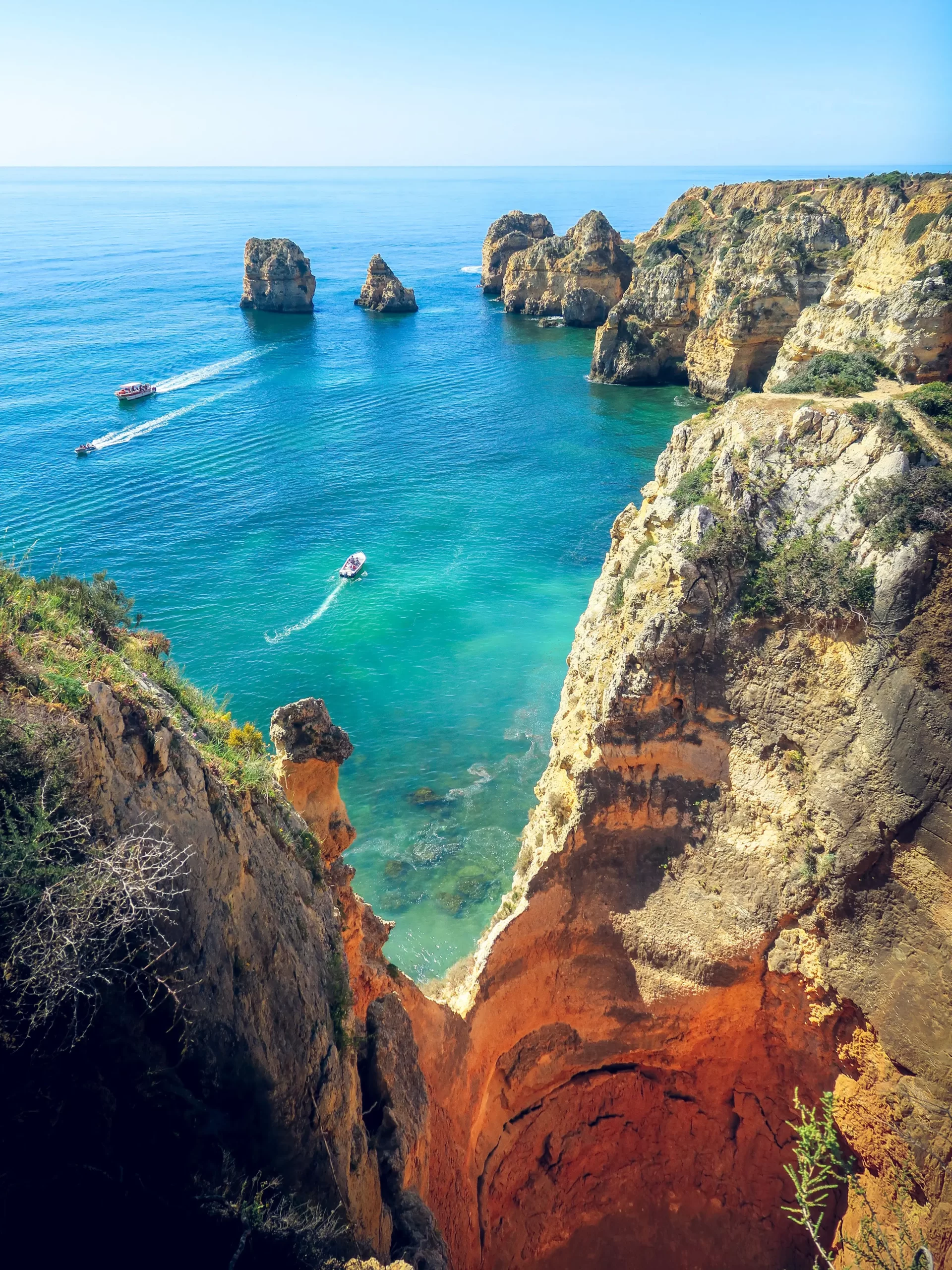
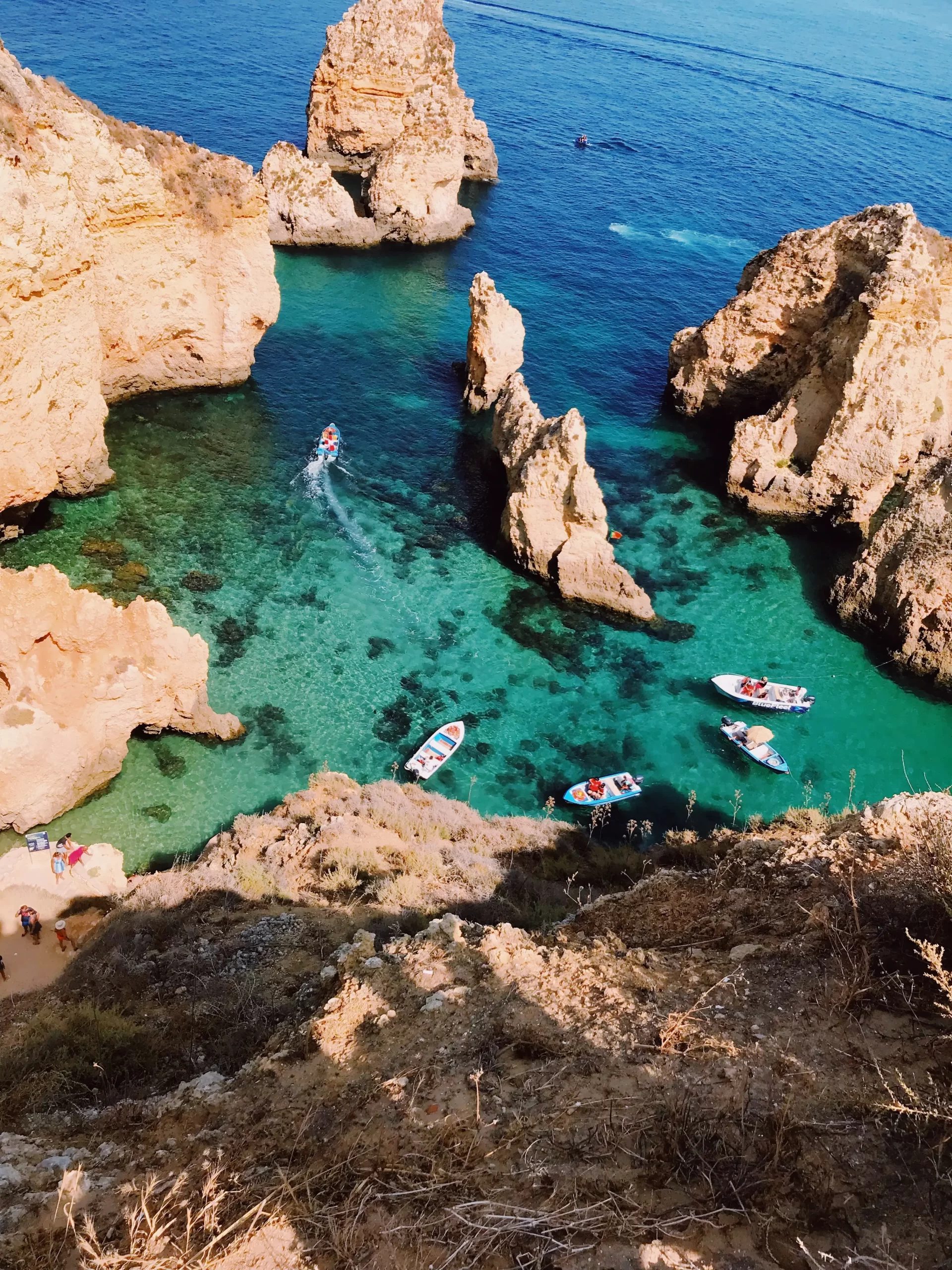
Moving to the algarve
When did you move to Portugal? Why?
I moved to Portugal in the spring of 2022. Since I was a kid learning about the history, art, and architecture of Europe, I’ve always wanted to spend some time living in Europe and learning a new language. My teens and my 20s passed me by, but my year abroad in Europe never happened. By this point, I was 28 years old, and I was married with two children. Living in Europe started to feel impossible. Then, I heard about the D7 visa, and I realized that living in Europe could still be a reality for me. At this point in my life, after living in the U.S. for 10 years, I was ready for a simpler and safer life away from lethal racism, gun violence, and polarizing politics. I’d heard so many great things about Portugal, especially regarding the safety and diversity of the country, so I talked to my husband about it, and we decided that we were willing to take the leap and move to Portugal for one year.
What surprised you about life there when you first arrived?
I was surprised by how kind and accommodating people are to children. They are not seen as a burden or an inconvenience. They are valued and appreciated, as are parents too.
What should people consider before deciding to move to Portugal?
There are so many things to consider, but the biggest thing might be talking to a tax professional who can explain your tax obligations. You will need to file taxes both in the U.S. and in Portugal, so it’s important to find a professional you trust who can help you navigate complex tax laws and tax requirements. That being said, everyone’s considerations are going to be unique to their individual circumstances, which is why I started offering 1-on-1 consultations with me to answer specific questions.
How did you find an apartment?
I used a website called Idealista to find the apartment I have now. My rent is about $1,420 U.S. dollars per month. It is a two-bedroom, one bathroom, fully furnished townhome with a private entrance, and it has central air conditioning, heating, a dishwasher, a clothes washing machine, and electricity and water are included in the rent price.
Was it difficult for you to get medical insurance?
No, it wasn’t difficult at all. There are lots of options. I have private health insurance, which has been pretty easy to set up and use.
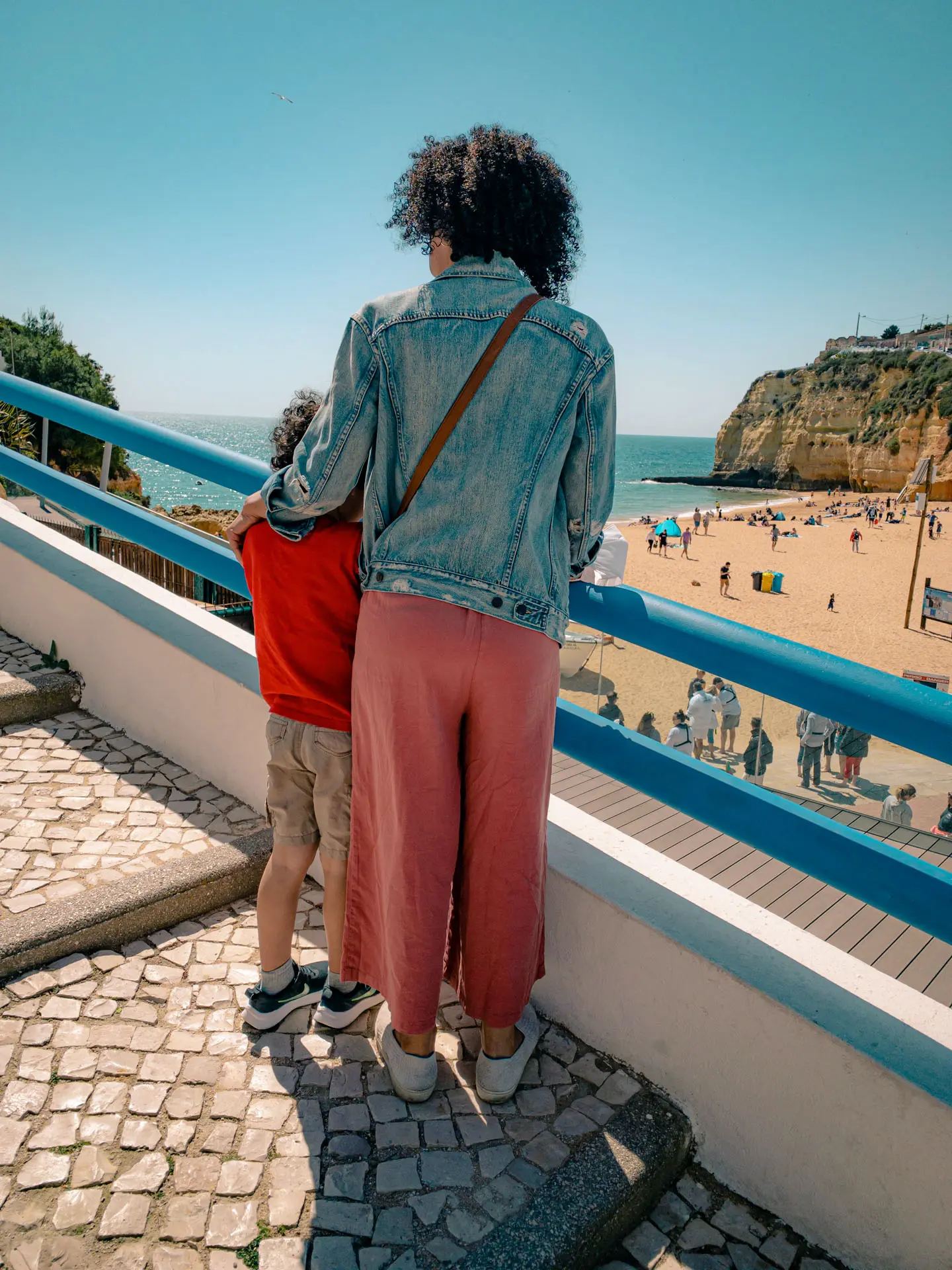
How can Americans immigrate to Portugal?
My husband and I immigrated to Portugal on the D7 visa. I have a free guide that lays out the eight major steps we had to complete to get the visa. Some of the requirements have changed, but the guide I created can give you a general idea of what’s needed, and I also provide links to more resources and information that can help visa-seekers.
What did you bring with you?
My husband and I only brought what we could carry! Two checked suitcases, two carry-on suitcases, two duffel bags, and 2 backpacks. Everything else we sold or gave away. We sold our car too. We left nothing in storage.
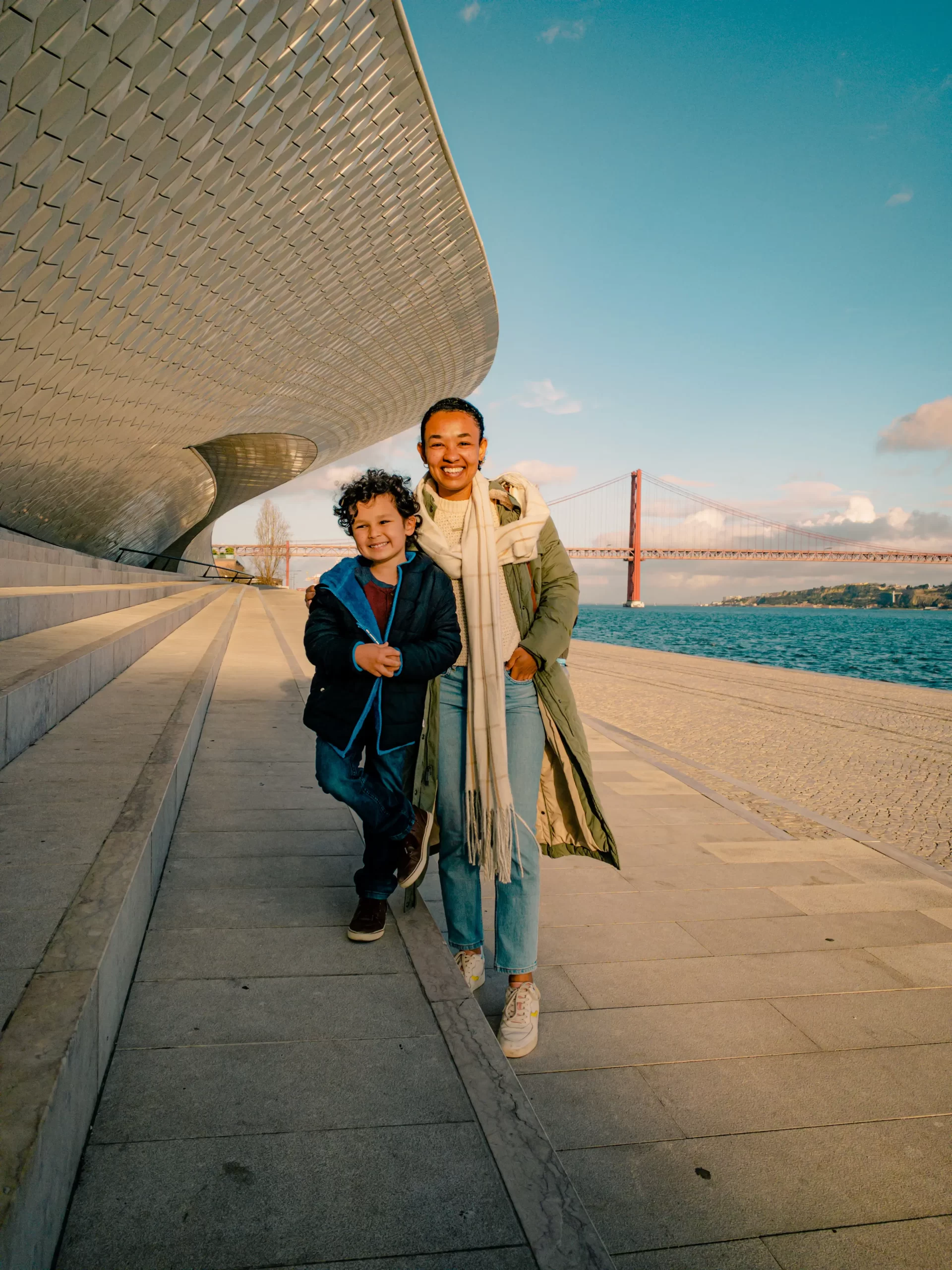
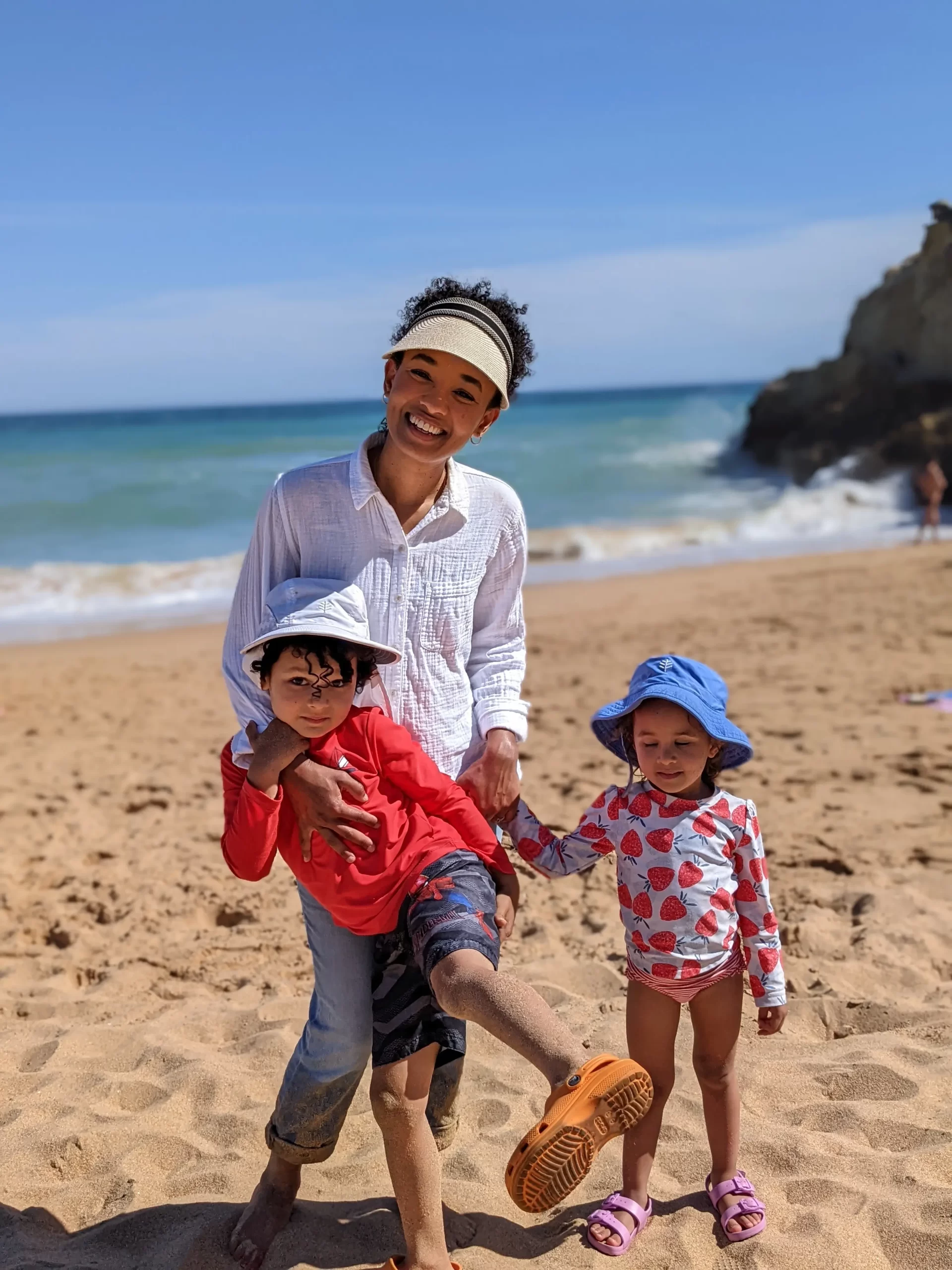
Living in the algarve
What is Portugal known for?
This is a big question, and I’m sure the answer changes depending on who you ask. For United States expats, Portugal is known for its stunning beaches, inexpensive housing, food, and healthcare, and family-friendly culture. Portugal is known for its beaches. You can find amazing beaches pretty much most places along the coast. I cover all of these topics and several others in a ebook I created for people who are thinking about moving to Portugal.
What are the main differences between Portuguese people and Americans?
America is a massive country, and Portugal is very small in comparison. I spent most of my time in America living in Orange County, California so my exposure to “Americans” as a whole is limited. However, I will say the main difference that I’ve experienced is significantly less racism and a culture of kindness and accommodation to families and children.
Is life better there than in California?
I definitely miss things about California. For instance, California puts you close in proximity to so many things. But in regards to the things I value right now as a mother of two small children, as a Black woman, as a person in a multi-racial relationship, as someone who needs time, space, and resources to continue healing from childhood abuse — yes, Portugal is better than California for me and my family right now because it is meeting the needs we have and the values we hold at this time.
Do you need to speak Portuguese well to live in Portugal?
No, you do not need to speak Portuguese to live in Portugal. About 90% of my interactions with locals are in English. However, it is helpful to know some basic Portuguese out of respect for the locals and for the rare occasion that the person you’re talking to doesn’t know any English.
What are your favorite things to do in Portugal specifically?
I love going to the beach, checking out different coffee shops, going on walks, especially in the springtime (Portugal has the best spring season I’ve ever experienced), and resting. My life is slower paced here, so I love to spend time on my sunroof in my hammock.
When’s the best moment to visit the Algarve?
Late spring, like April or May, are the best times to visit. There are still lots of spring flowers, and it’s not too hot yet.
How much money do you need to live comfortably in the Algarve?
I have a family of four people, I have two kids in private school, I have a monthly car payment, and I pay rent for a decent, fully-furnished apartment. I spend about $5,400 U.S. dollars per month to live comfortably. I created a video giving a tour of my apartment in the Algarve.
Do you feel safe as a woman in the Algarve?
Yes, I do feel very safe as a woman in Portugal. Much more than I did in the U.S.
Describe your favorite recreational activities there or those that are available.
I love going to the beach when it’s not too hot. Other than that, finding a nice café with quality coffee is my next favorite activity. Journaling and reading alone with a latte or cappuccino is my favorite self-care activity.
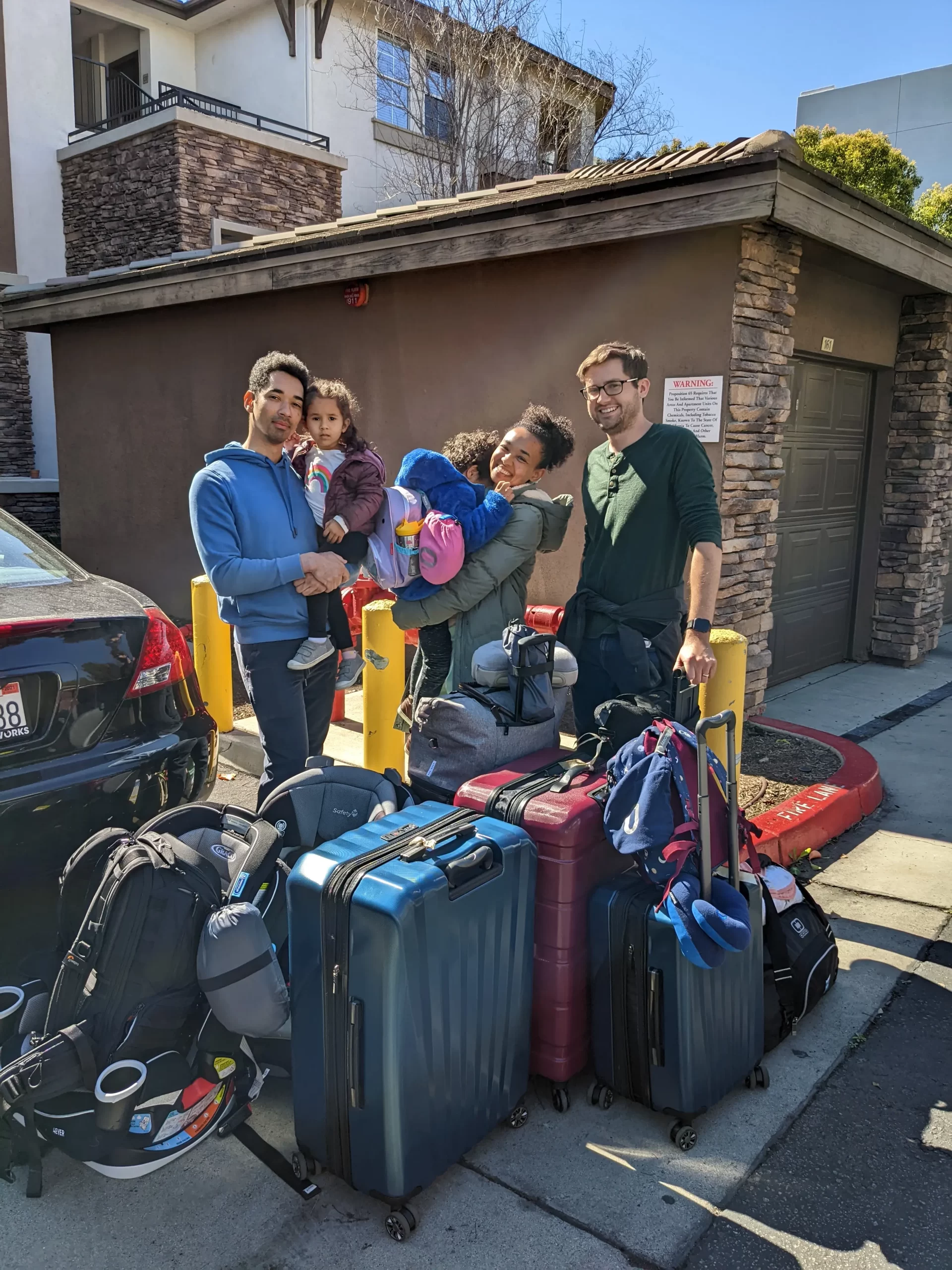
Final Thoughts
Can you tell us something else about Portugal that we might not know?
If you go to a government office to sign up for public health insurance or to get your temporary resident visa, you will most likely need a translator. In my experience, the people who work at government offices don’t speak English, and the documents you will need to sign will all be in Portuguese, and you are not allowed to sign them if you don’t speak Portuguese or have a translator with you.
What are the biggest challenges that Portugal faces today?
Portugal faces high rent costs due to immigrants (like me) moving in, and they also are struggling with low minimum wage. I’ve been talking to locals of different professions and ages about this, and I’m hearing that they don’t mind the immigrants because of the increased money that it has been bringing to businesses; however, they are frustrated with their government not mandating a higher minimum wage, since the government is profiting from the high immigration, but is clearly not using the economic boost to support locals.
Was it easy making friends and meeting people in Portugal?
My social circle here in Portugal is mostly of other expats. But I’ll admit, I don’t get out much. I work full-time as a nonprofit Senior Communications Manager, I run my self-care coaching and podcast business on the side, and I’m a mom of two little kids. I don’t really prioritize going out in this season of my life. When I’m not working or mothering, I’m resting, doing something I enjoy (like baking cookies or watching TV) or hanging out with my husband. I still keep in touch with four close friends from the U.S. through regular Zoom calls, and that has been lovely!
Can you tell me something about local culture that people might not know?
A lot of people, particularly older people, feel that they can touch children. It’s usually a pat on the head or on the shoulder. This gesture is from a place of love for children, but I don’t like it, and it makes my children uncomfortable. So, I’ve had to learn to speak up and ask for people to not touch my kids.
What has been the hardest aspect of living in Portugal?
The hardest aspect for me has been getting used to having fewer shops, product options, and overall food options. I lived in Southern California, where there was so much variety, so it can be hard to get used to having less in terms of consumer goods. However, it has helped me save money and buy fewer things, which I appreciate.
What are your plans for the future?
My plan at the moment is to keep working, healing, and living. I only just feel, after one year of living in Portugal, that I have found a groove and an ease. I have restarted EMDR trauma therapy for the first time in several years, and that takes a lot of time and energy, so I am continuing to allow that to be my focus alongside my work and my family life. I am in no rush for any big changes anytime soon.



